Vol. 68, July 2025
Have you published something new in Global Urban History? Are you hosting a conference, workshop, or event? We'd like our members to know!
GUHP is a member-supported organization.
| GUHP2 Berlin: A Celebration of Global Urban History in Berlin
Global Urban Historians from five continents gathered last week for GUHP2 Berlin, a spirited three-day celebration of scholarship and theory devoted to “Stretching the Limits” of our field. The conference was organized by the Global Urban History Project and hosted by Dorothee Brantz of the Center for Metropolitan Studies. It took place in the main building of the Technische Universität Berlin.
Among the 150 scholars who participated were fifteen of this year’s GUHP Emerging Scholars. Participants also included, many early-career scholars from previous cohorts in the program, and a wide range of senior historians as well as anthropologists, geographers, urban political ecologists, and urban theorists.
Read more on our website
| The DNA of Cities podcast
GUHP President Rosemary Wakeman was featured on The DNA of Cities to discuss her recent book, The Worlds of Victor Sassoon. The podcast also interviewed other GUHP board members this season, including Wangui Kimari in a Keynote and Matt Vitz in an exploration of The DNA of Mexico City.
Check out the DNA of Cities podcast
| 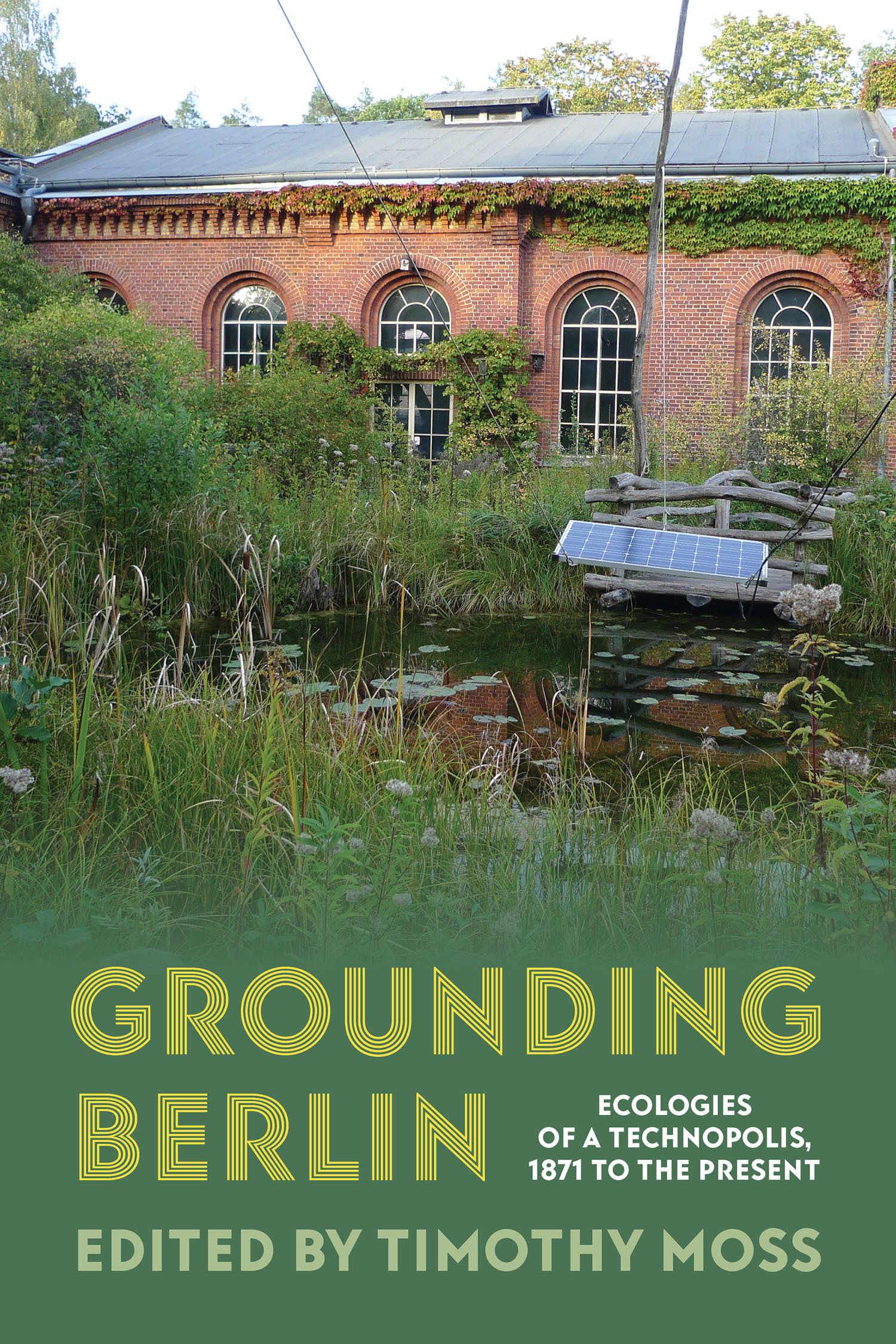 | | Grounding Berlin: Ecologies of a Technopolis, 1871 to the Present
By Timothy Moss
(University of Pittsburgh Press, 2025)
Grounding Berlin explores the city’s pioneering contributions to urban technology and urban ecology in Europe and around the world over the past 150 years. Following the 1871 unification of Germany, Berlin experienced rapid industrialization and urbanization. Providing the necessary energy, water, waste removal, and land required massive interventions in the city and its surrounding region. As Berlin transformed nature in the name of urban modernism, it earned a global reputation as a technopolis. This reputation for innovation in urban technology was fanned in the Weimar Republic and revived—in very different ways—in West Berlin to cope with political isolation after 1949, to embrace a sustainability agenda in the early years of the reunified city, and to decarbonize the city today. Berlin is an instructive case study for understanding the ambitions and tensions involved in transforming environments through technology across highly diverse political regimes. More broadly, the book advances envirotech history as a productive lens for studying shifting relationships between society, nature, and technology in cities...[more]
| | | | Fevered Cities: A History of Dengue Epidemics
By Randall M. Packard
(Johns Hopkins University Press, 2025)
A global history of dengue fever and humanity's ongoing struggle against this persistent disease. In Fevered Cities, Randall M. Packard explores the complex and evolving history of dengue fever, the world's most widespread mosquito-borne viral disease. From its early manifestations in the eighteenth century to its current prevalence across more than one hundred countries, this book traces how dengue emerged as a global health challenge shaped by ecological, social, and economic conditions. Packard examines the disease's spread through urban landscapes, focusing on specific cities like Philadelphia, Manila, Havana, and Rio de Janeiro to illustrate how local contexts have defined outbreaks and responses...[more]
| | | 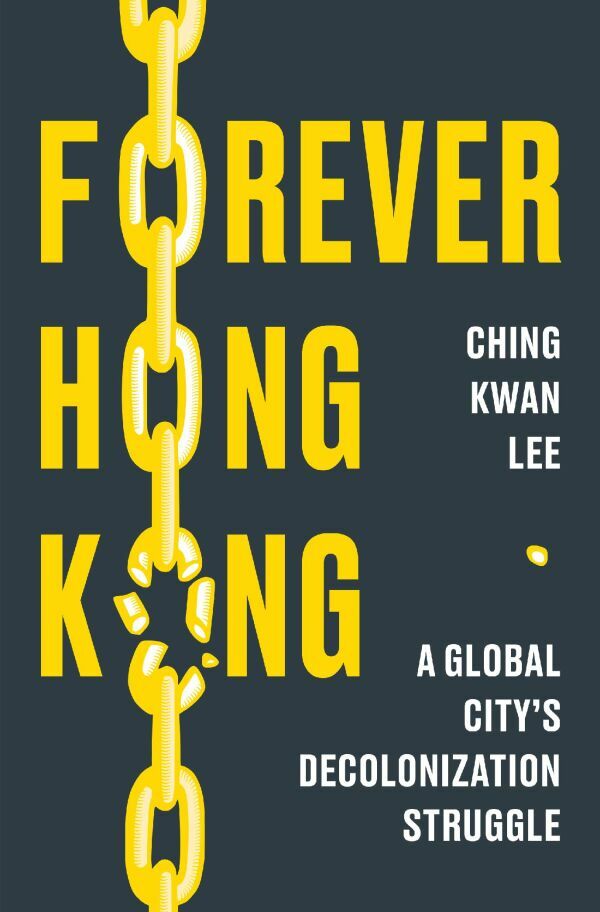 | | Forever Hong Kong: A Global City's Decolonization Struggle
By Ching Kwan Lee
(Harvard University Press, 2025)
An on-the-ground account of the dramatic 2019 Hong Kong protests, showing how they represent the latest stage of a decades-old decolonization struggle. Long known for its glamour and affluence, Hong Kong shocked the world in 2019 when millions of its citizens took to the streets in protest. For more than six months, Hong Kongers braved the police’s often violent suppression. At the forefront were young adults fighting not just for universal suffrage but for their vision of a good society, a just economy, rule of law, and a future of self-determination. Forever Hong Kong takes readers deep inside this improbable decolonization struggle in one of the global centers of capitalism, providing granular insight into a movement that had been gestating for decades. Caught between the relentlessly encroaching Chinese party-state and the kingpins of international commerce—for whom political complacency is the foundation of a stable and profitable business environment—are Hong Kongers themselves...[more] | | | | Introduction: uneasy neighbours: proximity, sociability and difference in the colonial city, c. 1870–1940
By Avner Ofrath and Norman Aselmeyer
Urban History (June 2025)
This introductory essay establishes the site of the neighbourhood and the social fact of urban proximity as crucial, conflicted and volatile conditions of colonial society. We show that the colonial neighbourhood was a highly contested space where diverse populations, stark inequalities and asymmetric power distributions played out in the most palpable manner. At the same time, it also emerged as an incubator of sociability, solidarity and protest across communal lines. The constant tension between physical proximity and profound inequality defined much of the social dynamics in the colonial city, making neighbours and neighbourhoods a most promising terrain of enquiry...[more]
| | | 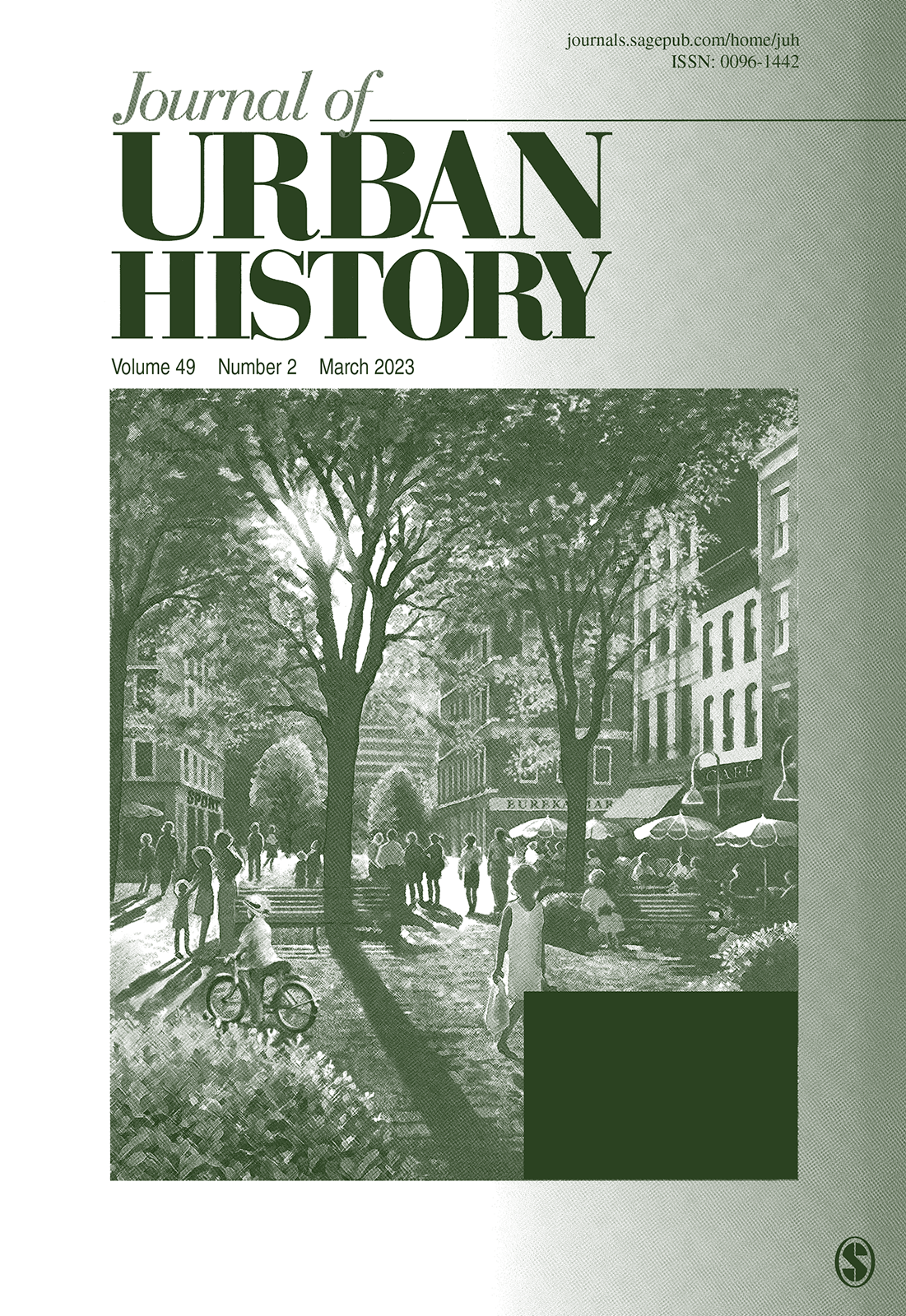 | | Sustainability, Creativity, and Livability in Great East Asian Megacities: Insights from Twenty-First Century Tokyo, Seoul, and Chinese Creative Clusters
By Raffaele Pernice
Journal of Urban History (May 2025)
At the turn of twenty-first century, which many have heralded as the “Asian Century” when the economic dominance of the Asian continent will consolidate and also expand into a larger cultural and political global influence, evident symbols of this announced supremacy (albeit by now largely contained by more recent radical changes spanning from the geopolitical instability, growing economic woes, to the pandemic fallouts) are the rapid urban growth and the radical transformation of the city landscapes in this part of the word which is now among the most dense, technologically advanced, and populated area on the planet. Especially the East Asia Pacific region is a geographic area which has rapidly become a flourishing center of new ideas, influential cultural models and the engine of future-oriented paradigms of urban development in every aspect of the urban life, with mega-cities like Tokyo, Seoul and Shanghai as undiscussed protagonists and drivers of innovations, new trends and planning lessons potentially replicable elsewhere in the world. Truly a sort of massive laboratory of radical concepts and design schemes, these global cities are condensers and showcases for experimental projects and most advanced urban visions which have few comparable contenders and often offer a glimpse into what is coming (for good or bad) in the urban future...[more]
| | | 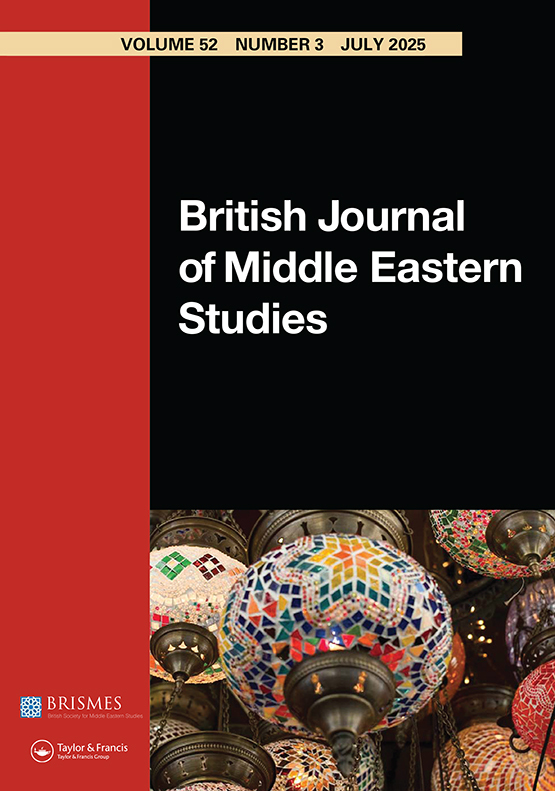 | | Istanbul’s ordeal with disaster: the British embassy-house and Sir Henry Elliot in the Pera fire of 1870
By Mustafa Malhut
British Journal of Middle Eastern Studies (January 2025)
Istanbul has encountered numerous disasters throughout its history. Currently, there is an anticipation of an earthquake in Istanbul, and measures to address this concern are of utmost importance. During the 19th century, one of the primary challenges in Istanbul was fire. In this study, the impact of a fire that occurred in the Ottoman capital will be examined through the perspectives of modernization and mentality analysis. The primary aim of the study is to demonstrate how a building, believed to be highly secure and resistant against fires, becomes inadequate and helpless when urban transformation or restructuring does not take place comprehensively. The importance of engaging in a comprehensive, systematic, planned, decisive, and consistent effort against disasters will be discussed and analysed through the example of the British Embassy building during the Pera fire of 1870...[more] | | |  | | Workshop: Illegal workers and illegal work before 1930
Universidade Federal Fluminense
Rio de Janeiro, March 5-6, 2026
The term “illegal” to refer to a person’s official status was introduced in the Western hemisphere in the 1930s and is closely tied to the regulation of international (labor) migration, but processes of illegalization have much deeper roots. For centuries, people have found themselves undocumented, illegalized, or unable to prove that they were in a place in accordance with the law. This workshop aims to explore how workers were dragged from legality into illegality, and the other way around. Who found themselves in conditions of illegality and undocumentedness, when, how, and why? How could they get out? We invite scholars from all disciplines who engage the past to answer these questions. For example, they might study how the state of technological development informed ways of identification. They might analyze processes of illegalization that took place with or without State sanction. They might look into the underlying motivations or consequences of il/legalization, such as social exclusion, forced mobility, susceptibility to exploitation, vulnerability to policing, restricted access to the legal justice system, and many more. The workshop explores processes of il/legalization and their relation to labor in a variety of historical contexts. The intention is to relativize the importance of international movements, passports, and borders; to complicate the claim that illegality is a recent phenomenon; and to shed light on the variety of political and social institutions involved in creating, upholding, condoning, or ignoring illegalization...[more]
| | | 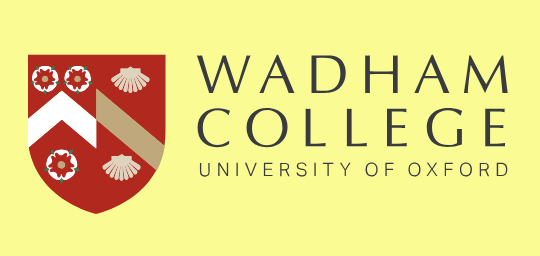 | | Workshop: "Cities and Decolonization: Anti-colonial Struggles, Urban Protest, and Global Solidarities"
Oxford, UK
March 19-20, 2026
The aim of the workshop is to reassess the relationship between the city and the struggle for decolonization in the colonial world. It brings together scholars examining anti-colonial movements in specific urban contexts in the twentieth century. The workshop seeks to foster dialogue on the relationship between anti-colonial protests and colonial cities in Africa and Asia, exploring how these struggles were shaped by diverse social groups, the spatial organization of urban environments, and the tensions between competing visions of anti-colonial practice. What role did cities play in shaping the dynamics of twentieth-century decolonization? This question continues to captivate scholars across disciplines. Contemporaries perceived revolutionary movements as originating from urban hubs and radiating outward into rural regions. Aristide Zolberg evocatively characterized anti-colonial movements as “creatures with a relatively large head in the capital and fairly rudimentary limbs.”[1] In contrast, postcolonial thinkers like Frantz Fanon, significantly influenced by Marxist scholarship, insisted that “the peasants alone are revolutionary.”[2] Historian Raymond Betts proposed a nuanced interpretation, suggesting anti-colonial movements were simultaneously “rooted in the countryside and grounded in the city...[more]
| | |  | | The Crossroad City: Relations and exchanges, intersections and crossing points in urban realities
The XII AISU Congress
Palermo, September 10-13, 2025
Cities have exerted an irresistible force of attraction since antiquity and over the centuries, and still do today, representing themselves as places of aggregation, of exchange, sometimes of permanent settlement but frequently also of passage. In many respects and from different points of view, the city appears on many occasions to be a real crossroad, a place where cultures, religions, power groups and institutions meet but also clash, a theatre of markets and trade, a temporary landing place in the context of broader and more dynamic migratory processes, a place where urban design ideas and realisations are debated and technical confrontations are held; sometimes it is the urban form itself that materialises the concept of crossroads, in foundation or refoundation projects, material or symbolic, of the built environment. The 12th AISU Congress intends to produce investigations and promote debates on the city as a crossroad, in the material but also metaphorical meaning of the term, with a multi-scalar and multi-disciplinary approach and from the multiple points of view that contribute to define urban history studies...[more]
| | |  | | The Urban Commons: Rights and Citizenship in the City from the Medieval to the Modern
University of Leicester
4-5 September 2025
Ideas of the urban commons have been important in cities throughout history. Examining their importance questions the extent to which the city a site of freedom and free expression, yet also reveals the ways that places, behaviours, and protest are policed. Furthermore, how have attitudes towards urban commons changed over time and in different places? Medieval and early modern townspeople, for example, habitually contested the regulation of common spaces such as marketplaces, while also invoking the idea of the ‘commons’, and the ‘commonweal’ in all kinds of debates around power and control. The Chartists famously exerted their right to collect and protest on sites such as Kennington Common and St Peter’s Field. Since the 1950s, the development of shopping precincts has created new types of private space, and increasingly policed appropriate behaviours in the city. What these examples reveal is that ideas of who has a right to the city, what can be done, and who can do it, constantly shift in different periods and in differing geographic locations. In exploring the idea of the urban commons, the conference also asks participants to consider issues of ownership of, and participation in the urban past. In so doing, it takes inspiration from the vitality of the impact agenda which has led to much new co-produced urban research and local history projects...[more]
| | | Calls for Papers & Proposals |
Special Issue: “Mobile cultures and the Anthropocene”
The Journal of Transport History
Research on mobility has shown considerable interest in promoting an interdisciplinary approach to history in order to renew knowledge of transport. Among the issues brought to light by these perspectives, the question of the environment is central. Because transport affects the territories we inhabit, because it reflects the way societies are nurtured by technology, the mobilisation of history and its long-term perspectives shed light on the footprints our mobility patterns have left on the Earth. Their material impact, which is reflected in the interweaving of the technical, social and entrepreneurial infrastructures they have constituted over the long term; the change in representations - of movement, space and ways of life - that they have initiated...[more]
Submission deadline: July 15, 2025
|
CFP: "Crossroads: Environmental Histories on Contested Ground" Conference
American Society for Environmental History
The American Society for Environmental History (ASEH) invites proposals for our next conference! The conference will be held March 25-28, 2026, in Kansas City, Missouri. The theme, Crossroads: Environmental Histories on Contested Ground speaks to Kansas City’s rich history as a meeting point for people, goods, and ideas from across the continent. This region exemplifies the entanglement of environmental history with histories of imperialism, colonial displacement, globalizing economies, and struggles for racial justice. At the confluence of the Kansas and Missouri Rivers, where the forests of the East become the prairies of the West, the city developed on land belonging to diverse Indigenous communities, including the Kaw and Osage nations. Before the founding of the city, the area was a hub for an Indigenous-white commerce in millions of beaver pelts and bison hides. In the nineteenth century, Kansas City became an eastern terminus for transportation routes that opened the West to extraction and settlement, while Missouri and Kansas played important roles in conflicts over freedom and enslavement and the competing systems of land use and expansion that undergirded sectional conflict. In the twentieth century the city and region continued to sit at the crossroads of both local and national challenges that came with urban development, racial tensions, and environmental degradation...[more]
Submission deadline: August 25, 2025
|
CFP: 2026 Society for French Historical Studies Conference
Philadelphia, PA, USA
March 5-8, 2026
The Society for French Historical Studies invites proposal submissions for the 2026 annual meeting, which will take place in Philadelphia, Pennsylvania. In the city where the Declaration of Independence was signed 250 years ago, the theme of this year's conference is "Liberties." Plenary speakers include François Furstenberg (Johns Hopkins University), Jennifer Johnson (Brown University), and Ashli White (University of Miami). Conference sessions will take place at the Philadelphia Marriott Old City. Proposals are due September 15, 2025. We will circulate a submission portal link in early August. In the meantime, please feel free to reach out to sfhsphiladelphia@gmail.com with any questions that you may have. We invite submissions on any aspect of French history, but we particularly welcome submissions that engage the conference’s theme. We are also open to papers and panels that speak to wider European and/or Francophone geographies, such as histories of empire or colonization, transnational histories, and more...[more]
Submission deadline: September 15, 2025
|
CFP: "Disappearances and Preservations in World History" Special Issue
World History Bulletin
World History Bulletin is seeking quality research essays, experiential learning case studies, and classroom activities for inclusion in its upcoming Spring/Summer 2026 issue, “Disappearances and Preservations in World History.” The issue will explore how our understanding of the past evolves as we revisit, reconsider, and preserve history for future generations. The theme of “Disappearances and Preservations” raises important questions about who determines what is preserved and what is allowed to disappear, the criteria used to ensure preservation, the motives which inform disappearance or preservation, the evolution of techniques of preservation, the affect of the loss of historical material on future studies, and how selective preservation can prejudice current historical studies...[more]
Submission deadline: September 15, 2025 | Fellowships, Grants, & Awards | | Editorial Fellowships at History Workshop
History Workshop
History Workshop is seeking to appoint two Editorial Fellows for the period October 2025 to September 2027. These paid fellowships are intended to support early career historians to develop their expertise in public, radical and digital history and to gain valuable experience as working as part of an editorial team. Editorial Fellows are expected to commission, edit, and publish engaging content, work collaboratively, and use social media creatively. Editorial fellowships are intended for early career historians, who must be in the third year of their PhD or beyond (including postdoctoral) and will not normally have a full-time, permanent academic post. We especially welcome applications that support our ambitions to include a diverse range of perspectives in radical history, including those from applicants of Global Majority heritage...[more]
Application deadline: August 15, 2025
| | | | Martin Lynn Scholarship in African History
The Royal Historical Society
The Royal Historical Society makes an annual Martin Lynn Scholarship award to assist a postgraduate researcher of African history. The Scholarship is worth £1,500. The Scholarship is open to members of the Royal Historical Society. Thanks to the generosity of the family of the late Martin Lynn, the RHS has established an annual award in his memory. Martin Lynn was Professor of African History in the Queen’s University, Belfast, the first scholar to hold a chair in African history in Ireland...[more]
Application deadline: September 5, 2025 | | | |